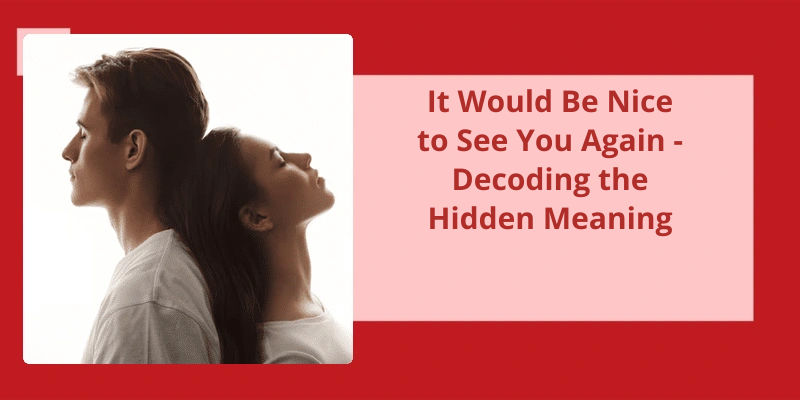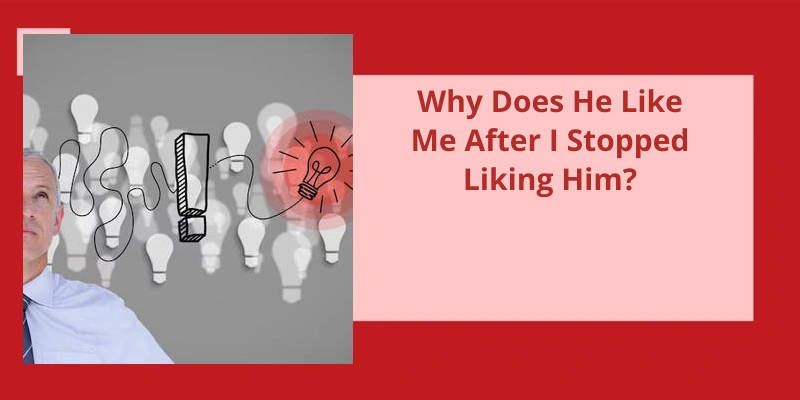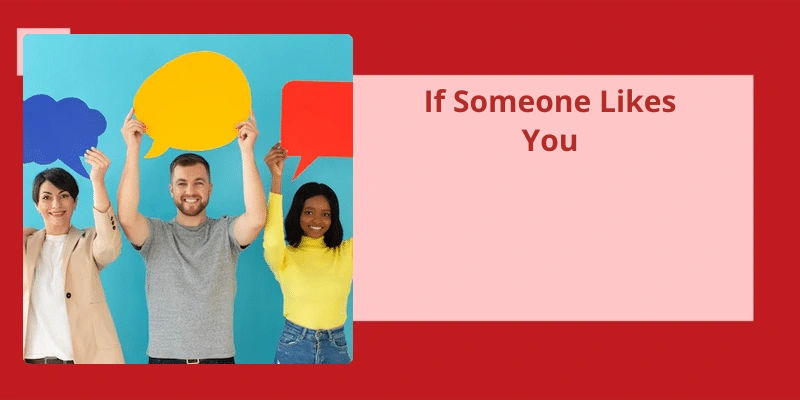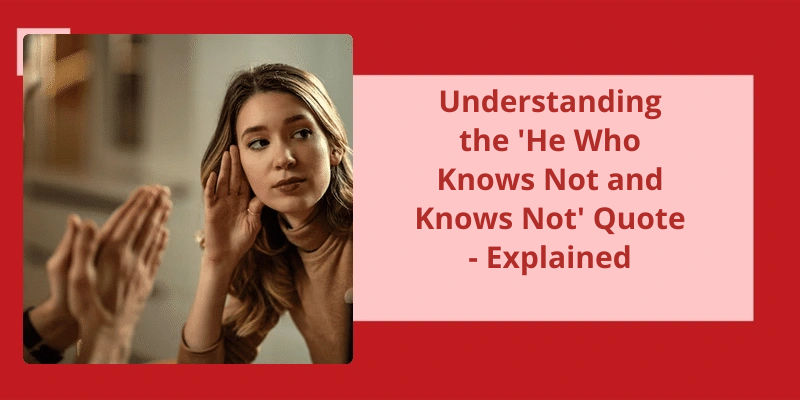The phrase "it would be nice to see you again" is a common expression used to convey a range of emotions depending on the context and tone in which it’s said. It can indicate a genuine sense of pleasure and excitement at the prospect of seeing someone again, or it can serve as a polite pleasantry with no deeper sentiment attached. On the other hand, it can also serve as a form of passive-aggressive behavior, indicating a desire to maintain distance or even hostility towards the person in question. Ultimately, the meaning behind this phrase is deeply dependent on the individual circumstances and those involved, making it a complex and multifaceted expression with ample room for interpretation.
What Does Nice to See You Again Mean?
When we say “nice to see you again,” we’re expressing a feeling of joy or delight at the opportunity to re-connect with someone we know or have met before. This phrase is often used in social situations, such as when encountering old friends, colleagues, or acquaintances whom we havent seen in a while. It’s also an appropriate greeting in business settings and professional relationships.
It shows that we value the relationship and cherish the memories of our past interactions. It’s an expression of gratitude and appreciation for the presence of the other person in our lives, even if it’s only for a brief moment.
It’s a way of showing that we take an interest in the other persons life and that we care about their well-being. It helps to build rapport and trust, and it creates a positive atmosphere in which to start a conversation or catch up on old times.
It’s a way of acknowledging the strength of our relationship and our ability to overcome obstacles and stay connected even when life gets tough.
It reminds us that we’re social creatures who thrive on companionship, support, and empathy. It’s a way of saying, “Im happy to be here with you, and I look forward to our next encounter.”
However, the phrase can sometimes carry different undertones depending on the context and tone it’s delivered in. Let’s take a closer look at the various meanings behind “it was nice to see you.”
What Does It Mean When Someone Says It Was Nice to See You?
It shows that the person values your presence and that you made a positive impression on them. It can also indicate that they miss you and hope to see you again soon. This statement is commonly used at the end of a conversation or meeting as a way to bid farewell and offer thanks. It can also be used to express sincerity and genuine fondness for the person being spoken to.
However, it’s important to note that the statement can have varying degrees of meaning depending on the context and relationship between the two people. If it’s someone you see frequently, it may be a casual farewell, but if it’s someone you havent seen in a while, it may carry more weight and signify a deeper connection or rekindling of friendship. It can also be a way to acknowledge and appreciate the effort someone has put into seeing you, such as traveling a long distance or carving out time in their busy schedule.
Overall, saying “it was nice to see you” is a simple way to express gratitude and appreciation for the time spent together. It can be used in both personal and professional settings, and is a polite and cordial way to end a conversation or encounter. Ultimately, it signifies a positive and enjoyable interaction that the speaker is grateful for and hopes to repeat in the future. So, the next time someone tells you “it was nice to see you,” take comfort in the fact that you’ve made a meaningful connection and positive impact on their day.
Source: What does it mean when someone says, ‘it was really nice …
But what if a guy says “it’s nice to see you again”? Does it imply the same thing or could there be a hidden meaning behind it? Let’s dive into this common phrase and explore it’s possible connotations.
What Does It Mean When a Guy Says It’s Nice to See You Again?
When a guy says “its nice to see you again,” it may sound like a simple social nicety. However, there’s often more meaning behind those words. It implies that the person is happy to be reunited with you and interested in continuing the relationship. It could be a romantic interest or just friendly, but it’s a positive sentiment regardless. It also shows that the person remembers you from a previous encounter, and that you left a positive impression on them.
This phrase can also signify a reconnection or rekindling of a relationship. Maybe you havent seen each other in a while, but when you finally do, the person expresses how wonderful it’s to see you again. This could be an indication that theyve missed you and want to pick up where you left off. It’s also possible that the person is feeling nostalgic or sentimental about the past and just happy to see someone from that time.
It suggests that he’s interested in spending more time together and that he values the connection you’ve made. However, it’s important to look for other signs of interest and to communicate with the person directly to avoid misunderstandings.
How to Respond When a Guy Says “It’s Nice to See You Again”
- Smile and say “It’s nice to see you too!”
- Ask how they’ve been since the last time you saw them
- Start a conversation about something you both have in common
- Share something interesting or funny that’s happened to you since you last saw them
- Depending on the situation, suggest grabbing a coffee or meal to catch up
- Keep the interaction light and friendly
Conclusion
While it’s often used as a polite and friendly gesture, it could just as easily be concealing a deeper disdain or dislike. Ultimately, the meaning behind this phrase can only be discerned through careful observation of the speaker's tone, body language, and context, as well as the nature of the relationship between speaker and recipient. As with any social interaction, it’s important to be mindful of the nuances and subtleties that underlie our communication, in order to avoid misinterpretation and misunderstandings.






